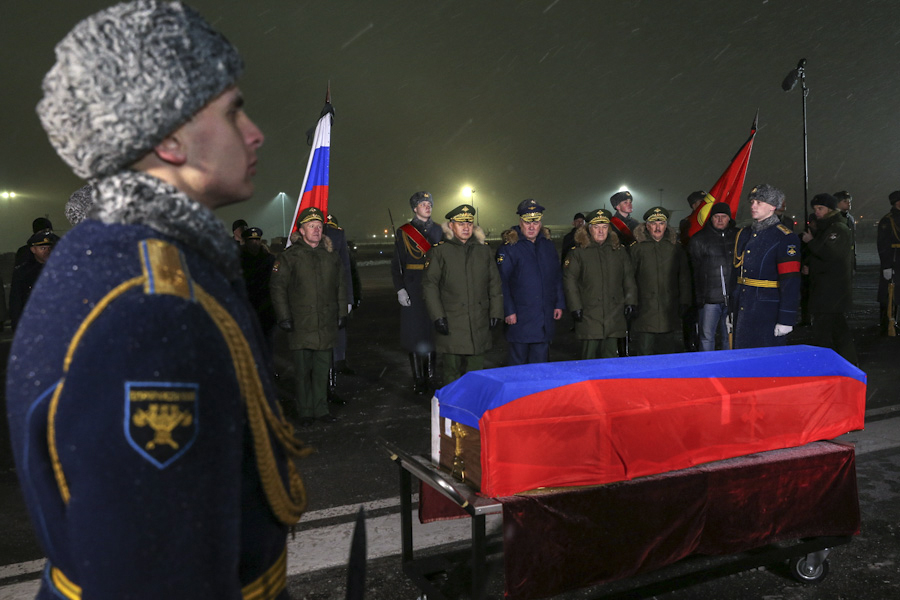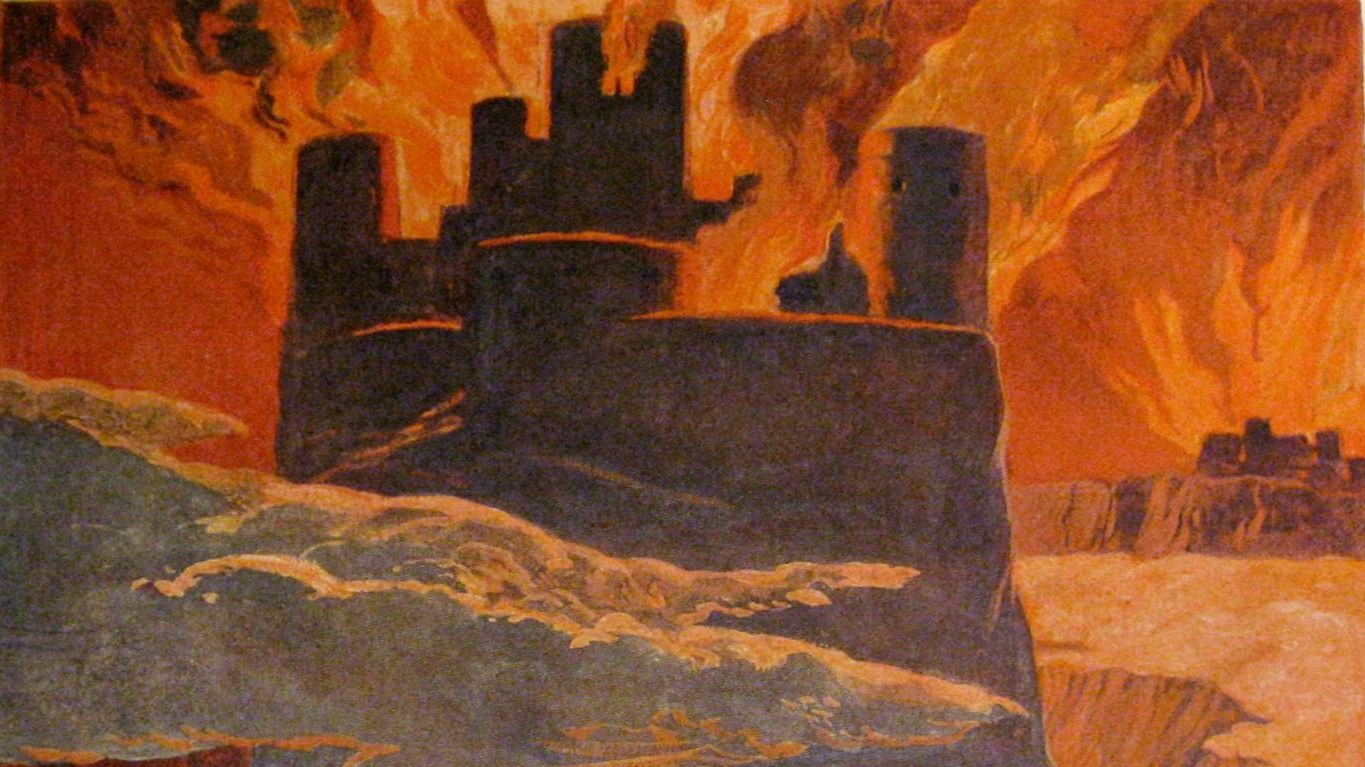Regardless of all inter-party disagreements, there is a strategic consensus of elites in the United States on the fact that no one in the world must be able to question the absolute American hegemony. Russia did.
What were the other “surprises” for the American intelligence agencies from the Russian “electronic intelligence”?
A new quiet, but very alarming for the American elites, scandal erupted in the USA in the end of October 2014.
On October 28, 2014 FireEye, Inc. that has been conducting cyber security research and developing cyber attack protection under contractual agreements with the intelligence community of the USA released its next report. The report “APT 28: A Window into Russia’s Cyber Espionage Operations?” states that one of the main threats to the cyber security of the USA is posed by a group of hackers that began its activities as far back as 2007. FireEye calls this group “ Advanced Persistent Threat 28” and considers it particularly dangerous as it mostly collects vital classified geopolitical and strategic military information.
In its report FireEye informs that APT28 members are high-class professionals. APT28 constantly updates the tools for its hacker operations including in closed and encrypted networks. WSJ reported that FireEye refers to this malware as “sophisticated cyberweapon, able to evade detection and hop between computers walled off from the Internet”.
FireEye argues that APT28 group is, most likely, Russian, as the commands in its hacking programs are often “phrased“ in Russian. Besides, FireEye stresses that the Russian intelligence services have been much more active in the cyberspace since the former CIA employee Edward Snowden was granted political asylum in Russia.
Also on October 28, on the date the FireEye report was released, the White House spokesman Josh Earnest told about some unknown hackers infiltrating the closely defended Executive Office of the President network: “the White House has detected some activity of concern on the White House network. There is an ongoing effort to evaluate that activity and to mitigate the risk… the administration is continuing to learn all we can about where those activities originated.”
In two days The New York Times wrote that United States Cyber Command were investigating the intrusion into the White House network and that their main hypothesis is that it was Russian cyber espionage. However the paper emphasizes that “the hackers were remarkably adept at covering their tracks…and officials say they may never know for sure.”
But the USA is having trouble not only in the secret field of “cyber war”.
Warfare in the field of “manufacturing public consent”
As we have already discussed in the previous parts of the article, years of efforts employed by the USA to gain control over the global media scene have produced very tangible results. Namely, virtually global opportunities of what Walter Lippmann called “manufacturing public consent”. Consent with the position and assessment of the American elite on the main vital issues of the world “agenda”.
But at the end of the last decade it was Russia yet again that began to question the total character of that American instrument of “suppression by involvement”.
In June 2005 Russia announced that it would launch an international TV network Russia Today that would “reflect Russia’s position on the main issues of international politics and inform the international audience about the events and developments of life in Russia”. The editor in chief of the emerging TV network Margarita Simonyan then said: “Foreign media do not always adequately show the events in Russia. This will be a glimpse on the events in the world from Russia. We don’t want to change the professional format fine-tuned by such channels as BBC, CNN or Euronews. We want to present the Russian opinion of the events in the world, and we want Russia to become more visible.”
On December 10, 2005 TV channel Russia Today (RT) went on air. And it quickly started to expand its coverage geographically, in terms of broadcasting time and subjects covered. In the beginning of 2010 RT office and studio in New York started operating. From March to July of 2012 RT aired the program of the WikiLeaks founder Julian Assange, The World Tomorrow. In 2013 RT became the first news TV channel in the world that got more than 1 billion views on YouTube.
Now RT programs are available around the clock for 700 million of viewers around the world. It has three 24/7 news channels broadcasting in English, Arabic and Spanish in more than 100 countries, a TV channel RT America, broadcasting from Washington, a documentary channel RTD and a video news agency RUPTLY that offers its exclusive materials to the TV networks all over the world.
On October 10, 2014 the president of Argentina Cristina Fernández de Kirchner together with the Russian president Vladimir Putin launched the RT’s Spanish-language channel on the national television of Argentina.
As early as the war in the Transcaucasian region in 2008 the pro-American global media community found out that RT had a significant influence over the world public opinion and noticeably hindered its total “manufacturing” in the USA interests.
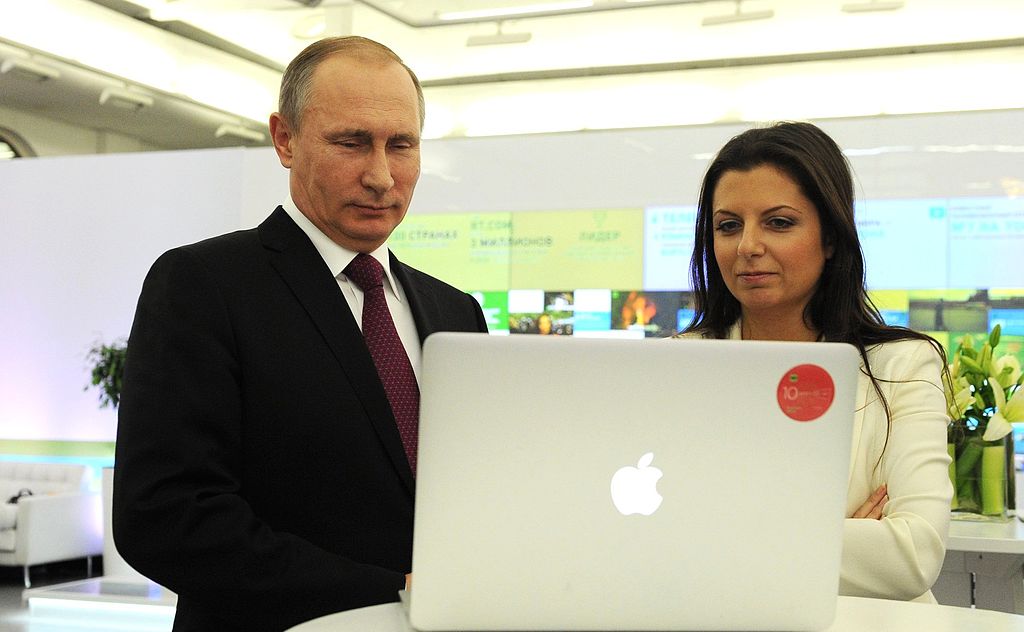
RT’s “destructive” influence over the American “manufacture of consent” became even more noticeable in 2013 during the US-led “coalition war” against Syria. It was then that a broad range of Western politicians, businessmen, experts and ordinary people (note that they appealed to the Russia’s arguments persistently voiced by RT) loud and clearly protested against that war. And it was then that the Americans labeled this group of protesters against the US politics the spiteful as “those who understand Russia and Putin.”
After Snowden’s revelations of 2013 the universal credibility of the pro-American media has naturally been undermined and the West (and not only the West) started to pay even closer attention to Russia’s opinion. And even the unprecedented military-propaganda campaign unleashed by the pro-American media during the Ukraine’s color revolution couldn’t totally silence neither the RT information, nor the voice of the growing community of those “who understand Putin” in the world. Besides, as more and more not simply influential people, but those who have political and moral authority join this community, the attempts of subverters to explain their pro-Russian position by accusing them of being bribed by Russians look less and less convincing.
The fact that the Americans and their allies have encountered some real and serious opposition in their total information war for the first time manifests itself in their inadequate, often almost hysterical, reaction.
On March 18, 2014 Google blocked RT YouTube account allegedly for “multiple and severe violations of YouTube’s policy against spam, gaming, misleading content, or other Terms of Service violations.” However the account was soon restored and Google declared that it was a technical error.
On August 29, 2014 an unknown assailant viciously beat an RT TV presenter, a writer and a British MP George Galloway on the street in central London. And in the beginning of October 2014 in that very same London RT street ad campaign was banned (on the basis of accusations of “political overtones”).
Expert debates on global politics started in the spring and summer of 2014 in high-profile American media. The central question of these debates were “those who understand Putin”. Note, that the most prominent experts and analysts joined the discussion, from Zbigniew Brzezinsky to Henry Kissinger, from the former Australian prime minister Malcolm Fraser to the former US Ambassador in Moscow Michael McFaul.
A clear example is the debate between the “understanding Putin” professor of the Chicago University John J. Mearsheimer and his opponents: former Obama’s Special Assistant for National Security and later – US ambassador to Russia and former ambassador-at-large in Bill Clinton’s administration Stephen Sestanovich. In that debate, part of which was published in the October issue of the main American journal on global politics Foreign Affairs, Mearsheimer proves in detail that the expansionist post-Soviet politics of the West and NATO’s persistent expansion eastward are to blame for the crisis in Ukraine. McFaul and Sestanovich replied that the cause of the crisis lies in the Russian imperialistic policies under Putin and that if NATO had not expanded, it would have been even worse.
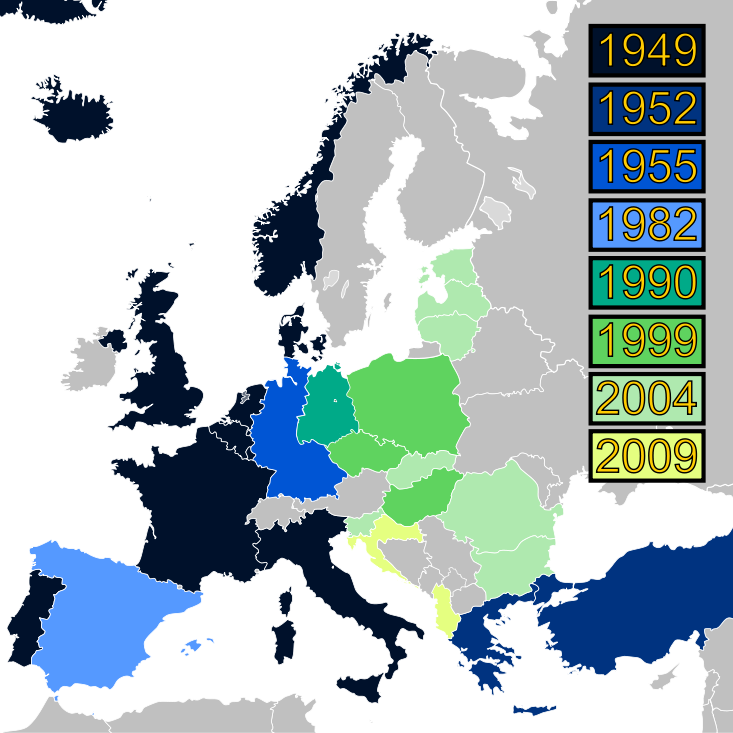
The very fact of such a debate in Foreign Affairs shows that the influence of Russia on broadening the range of “those who understand Putin” is perceived with concern in the USA. But the above mentioned debate is one of the few example of in any way reasoned dialogue. Other Western publications and most TV programs have long stopped mincing the words evaluating the Russian policies and personally Vladimir Putin. They are not the ones to mince words when assessing the information policy of Russia Today, either.
In this regard the discussion of the situation in the international information environment that took place on October 17, 2014 in Kennan Institute, Washington, with the participation of the US Department of State officials was particularly revealing. “The Voice of America” presented some of the speeches from this forum. David Kramer, the President of Freedom House said: “The propaganda, which emanates from Kremlin and the controlled by Kremlin news agencies, causes our extreme concern. They do not simply distort the information, they create their own reality. They give wrong interpretations of everything; they lie and present the situation in the false light. Ukraine is a vivid example of the above mentioned… Their entire activity is built on lies and has is very anti-Western and anti-American… which is, in my opinion, very dangerous.” Deputy Coordinator of the Bureau of International Information Programs of the US Department of State Tania Chomiak-Salvi also touched upon this subject: “We are especially concerned … by the attempts of the authorities to limit the fundamental freedoms not only for the citizens of Russia, but also for the citizens of the neighbouring countries, which obtain information from Russian media… while we had been distracted by other global challenges in recent years, President Putin had constructed a huge machine of disinformation, which has global coverage. We are shocked by its impudence and its bearing…”.
Let’s note that these accusations are being brought not only against Russia Today. For example, there have been repeated calls in the United States to block “Russian” Internet resources that carry out more and more widespread and persistent Kremlin propaganda.
Besides, agents of American media politics pay special attention to the so-called “news aggregators” (themed media resources) which focus on Russia. For instance, in the beginning of October 2014 British analyst Ben Judah (a long-time hater of Russia and Putin who used to work in Russia) launched an attack against the oldest American aggregator of news from Russia, very popular among the American and European experts, called Johnson’s Russia List (JRL), having accused its editors of “pro-Kremlin sympathies”. Ben Judah wrote that he stopped reading JRL with the development of events in Ukraine because he was receiving a selection of 20 best Russian propaganda materials sprinkled with a small amount of Reuters articles.
Russian discussion of amendments to the law limiting the participation of the foreign companies and citizens in the authorized capital of the Russian mass media caused no less hysteria in the West, as well as among Russian “liberal public”. However, despite the wave of accusations for “restricting free speech” and “silencing the opponents”, on October 15 Russian President Vladimir Putin signed the law adopted by the State Duma and the Federation Council that would limit the share of foreign capital in Russian mass media organizations to 20% starting from 2016.
We should emphasize that such restrictions are a generally accepted practice around the world. The possible foreigners’ share in the authorized capital of a mass media corporation in France and Japan is 20 %, in Australia — 30 %, in Canada — 46 %, in Great Britain foreigners cannot hold a share in a mass media corporation that exceeds that of a national co-owner. In the USA the foreigner can hold no more than 25% share of the TV and radio stations capital.
On November 10, 2014 Dmitry Kiselev, the director of the International Information Agency Rossiya Segodnya declared “full” launch of a multimedia project Sputnik, focused on foreign audiences. Sputnik has already started to report news in English, Spanish and Arabic, in December 2014 it will start to broadcast in Chinese. Sputnik is made up of 30 “multimedia hubs”, each comprised of a news agency, radio station, website editors and a press center. The total amount of the project’s radio programming in 130 cities of 34 countries of the world will be, according to Dmitry Kiselev, 800 hours a day.
An indirect “reaction” from London followed on the next day, November 11, 2014. The British media regulator Ofcom issued a new warning to the TV channel Russia Today for “biased coverage of events in Ukraine” and threatened to remove RT’s license and stop its broadcasting.
On November 13 The Washington Post replied with an editorial “Mr. Putin amplifies his anti-Western propaganda”. The article says that, “In recent months <…> Russian authorities have tightened their grip on an array of means of expression and outlets for news. Internet servers handling Russian traffic, including those used by Google, must now be located within Russia. <…> Thousands of propagandists on Mr. Putin’s payroll are to fan out to 25 major cities around the world, in an effort to counter what the Kremlin regards as the pro-American bias of Western news outlets. The network <…> known as Sputnik, <…> which is to include Web sites and radio broadcasts in 30 languages, will be directed by Dmitry Kiselyov, a virulent nationalist and homophobe…The Kremlin’s increasingly intrusive laws, which also ban foreigners from taking stakes exceeding 20 percent in Russian media companies, have had the desired chilling effect. This week, CNN suspended its broadcasts in Russia (though its news bureau continues to function).”
So what is Russia’s fault?
Russia, at least, according to USA, has uncovered, with the help of Assange and, especially, Snowden, the most important Anglo-Saxon (mostly American, of course) instrument of “suppression by involvement”, the system of total electronic espionage against both opponents and allies.
The fact of this American cyber espionage did not only deeply insult the elites of the allies and question further involvement of these elites in serving the American interests. This fact also led to the major practical actions that devalue the above mentioned American “cyber-blackmail” instruments.
China, Brazil, Saudi Arabia and a number of other countries are already laying their own fiber-optic cables, “independent” from the USA both in the ground and in the seas and oceans, and create their own server systems, “independent” from the internet-hubs, that are American or friendly to the USA. At the same time, more and more people around the globe start avoiding the services of US-controlled email services (including the widely used Microsoft Outlook), social networks and hosting services (Facebook, YouTube, Skype, etc.). At the same time, independent services, data storage and processing centers are being created. U.S.-controlled “cloud” data storage technologies are being used significantly less.
Russia, again, according to the USA, has demonstrated its own capabilities in the field of successful cyber espionage, comparable (not in scope but at least in terms of intellectual skill and technical potential) to the American ones. And by doing so it has further devalued the existing American cyber tools.
Russia, as it is evident from the more and more panic reactions in the USA and Great Britain, has managed to considerably undermine the absolute power of the Anglo-Saxon propaganda machine in the global media and on the Internet. It has even created the expanding (which is more important, expanding in the intellectual circles, the ones who have the most influence on the assessment of the situation by the general public) international community admitting the true and just character of the Russian assessment of the world events (“those who understand Russia and Putin”).
By doing this Russia has questioned the second key American instrument of “suppression by involvement”: the ability of the USA to align the global “manufacture of consent” with the world agenda and assessment of the global events and processes as declared by the Americans.
Russia, with its cyber intelligence methods, its media resources, and its international politics, has seriously weakened the unity of the actions and attitudes of American allies which the USA has been so persistently building.
Russia (primarily though Snowden’s revelations but not exclusively so) has very significantly undermined the strategic project of the American global economic domination, i.e. the creation of the free market zones, controlled by the USA as Transatlantic (TTIP) and Transpacific (TPP) partnerships.
In connection with TTIP and ТРР we should note some of the largely ignore by mass media, but very significant recent events.
In August of 2014 the representatives of the European commission admitted that the negotiations on TTIP are difficult and far from completion.
On September 12, 2014 the European Commissioner for Enlargement and European Neighbourhood Policy Štefan Füle announced that “it is time to set up formal relations between the EU and the Eurasian Economic Union and create a Free Trade Area” Which means that Füle (though shortly before the end of his mandate) has virtually presented an opportunity for Europe to turn to the strategic economic union with Russia, allegedly “buried” by the present Ukraine crisis.
On November 10, on the day of the commencement of the Asia-Pacific Economic Cooperation (APEC) summit in Beijing the future TPP members (where, I should remind you, neither China, nor Russia are planned to be included), privately gathered by Barak Obama in the American embassy, failed again to reach the compromise regarding the TPP agreement.
On November 11, 2014 the members of the European parliament have rejected the bill, offered by the European Commission, according to which the member countries of the EU were denied the right to ban growing the genetically modified crops on their territories. But distribution of the genetically modified food products (the major patents for which are held by the largest American companies, Monsanto and others) is one of the most important clauses of both TTIP and TPP projects.
On that very same November 11, 2014 the APEC members adopted the strategic alternative to TPP offered by the President of China Xi Jinping, the “road map” of the unified (that means including 21 countries of the region, among them China and Russia) Free Trade Area of the Asia-Pacific (FTAAP).

On November 15, 2014 during the first day of the G20 summit in Australian Brisbane, its members unanimously and quite harshly urged the USA to ratify the IMF reform, that increases the role of the developing countries in the Fund decisions.
On that very day in Brisbane the meeting of the leaders of the BRICS countries (Brazil, Russia, India, China, South Africa) took place, during which the administration and the temporary Board of Directors of the New Development Bank (NDB) of BRICS was appointed. NDB was set up during BRICS summit held in Fortaleza, Brazil four months prior, in July 2014.
NDB, which is supposed to start operating as early as 2015, will have the capital of $100 billion and $100 billion pool of currency reserves will be established as well. It will provide the opportunities of support of the BRICS member economies during crises, as well as expansion of trade among these countries in the national currencies instead of dollars. Some analysts have already dubbed NDB (in which all interested parties are encouraged to participate) as “the alternative IMF”.
I shall mention some more of the recent events pertaining to our topic.
On November 13, 2014, right after the end of the APEC summit, The New York Times reported that China’s leaders, including the President Xí Jìnpíng, were actively supporting the “anti-American” message of the Chinese bloggers. The USA immediately started talking that the union of the propagandist resources of China and Russia can have the most dangerous effect on the global public opinion and that the union of Russian and Chinese cyber espionage potential can become no less dangerous.
On November 19, 2014 the head of the Russian Ministry of Foreign Affairs Sergey Lavrov during the “government hour” in the State Duma announced that Russia had stopped the execution of the Treaty on Conventional Armed Forces in Europe as NATO had never ratified it and the treaty is “dead.”
On November 20, 2014 the Deputy Head of the International Department of the Central Committee of Communist Party of China, Mr. Zhou Li (for the first time!) explicitly supported the Russian politics regarding Ukraine and stated that “Russian-Chinese relations are more important than the strategic partnerships between PRC and the other countries…now these relations are the best throughout our common history.”
Also, on November 20 the head of the National Security Agency, Navy admiral Michael Rogers, said to the Congress commission that “malware that has been attributed to Russia has been detected on industrial control software for a wider range of American critical infrastructure systems throughout the country” and that China and “one or two others” can at any moment shut down the power supply system and other utilities of the USA.
On November 21, the British Financial Times reported that NATO had just held largest cyber war games using simulations of hacker attack against military, administrative and industrial networks of the alliance’s countries.
What does it all mean for Russia?
It means that Russia – lately supported by China and the rising number of “those who understand Putin” – has significantly undermined the most important to date resources of the global American domination through “soft power”, including the concept of “suppression by involvement”. That is why it is Russia that the USA is going to try and suppress first and foremost and by all possible means.
Speculations that the Republicans will throw sand in the Obama’s political machine and will help him “lose” in the situation with Ukraine appeared in the Russian mass media in connection with Obama’s Republican rivals winning the Midterm Congress elections. It is also often said that since China is actively supporting Russia, then it’s no big deal, we can handle the crisis as well.
We think that such evaluations are deeply erroneous.
It is not the presidential chair that is on the line for America (that is a tactical problem). All the inter-party disagreements notwithstanding, there is a strategic consensus of elites in the USA regarding the fact that no one in the world must be able to question the absolute American hegemony. Also, China is still rather careful when dealing with the USA. It appears that a bet on it becoming a sure ally for Russia would not be prudent. Things happened in our common history...
It means that it is against Russia that the USA will do everything in and beyond their power to validate their status of the “master of the global agenda”. And as they cannot manage to do that using “soft power” they will, most likely, force upon us multifactorial systemic war (the newly opened “second front” against Russia by Turkey is just one part of this war – Editor).
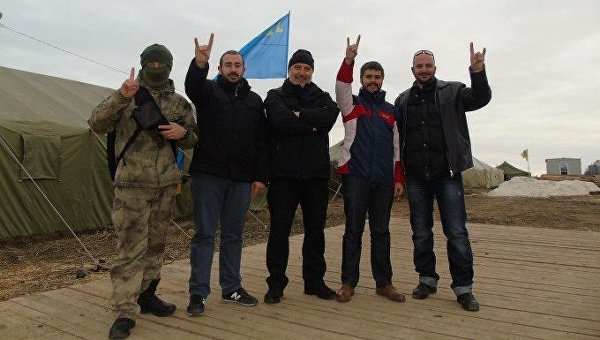
That’s why we should be ready for decisions to arm Kiev, for military provocations in Donbass and on the Russian borders, the new wave of terrorism in Russia and large-scale street Maidan-like rallies of the Liberal and Nazi Fifth Column, new economic sanctions and serious insider elite sabotage by those “involved” and much more
Today Russia is not ready for all of this to a catastrophic degree.
And it means there is an urgent need to get ready.
Source (for copy): https://eu.eot.su/?p=4408
This is the translation of the sixth article (first published in “Essence of Time” newspaper issue 105 on November 26, 2014) by Yury Byaly of a series on the conceptual weaponry by which the United States indirectly reshape the world and coerce governments of other countries to make decisions harmful to these countries, but beneficial to the U.S. Part 1. Part 2. Part 3. Part 4. Part 5.

